Update on Receiving Referrals
Due to high demand for psychotherapy services, the Social Work and Community Health (SWaCH) Psychotherapy Clinic is not receiving new referrals at this time. The decision comes as we strive to ensure that our patients receive the support and care they need, when they need it most. If you are in need of support with mental health needs, please contact our helpline at (800) 757-0202.
The Social Work and Community Health Psychotherapy Clinic provides evidence-based psychotherapy services to patients and community members with complex social and medical needs. Staffed by licensed clinical social workers, we are trauma-informed, strengths-based, collaborative and patient-centered.
Services are available for adults in both English and Spanish. We have long-standing experience working with people of diverse ethnic, religious and socioeconomic backgrounds, and we strive to provide accessible mental health treatment to all. We accept the same medical insurance as other Rush practices and provide many of our services to Medicaid recipients.
All our psychotherapists provide trauma-informed treatment and use an array of evidence-based treatment approaches, including but not limited to cognitive behavioral therapy, interpersonal therapy, psychodynamic psychotherapy, dialectical behavior therapy, eye movement desensitization and reprocessing therapy, acceptance and commitment therapy, in addition to relational and mindfulness-based approaches. Providing outpatient psychotherapy in a medical setting enables us to collaborate with other providers while advocating and empowering our patients around their full plan of care. This collaboration also includes formal partnerships with Rush epilepsy, infection disease and obstetrics and gynecology teams.
Psychotherapy Team Values
All of our psychotherapists are licensed social workers (LSWs and LCSWs) and practice from a place of social work ethics and values (service, social justice, dignity and worth of the person, importance of human relationships, integrity and competence). We seek to understand and empower individuals, families, and communities toward a more just world. Furthermore, we have strong partnerships with care managers across the institution and can help address psychosocial determinants of health and further advocate for connection or resources.
We seek to integrate Substance Abuse and Mental Health Services Administration’s (SAMSHA) approach to trauma-informed care by realizing the widespread and pervasive impact of trauma and potential paths to recovery, recognizing signs and symptoms of trauma, integrating knowledge of trauma into our policies and practices, and seeking to resist re-traumatization.
The strengths of our patients, families and communities are at the center of the healing process. We work collaboratively with our patients to identify and mobilize strengths and examine the function of behaviors that have supported coping.
We provide mental health services within the context of a large academic medical center. Often our patients seek treatment from multiple clinics and departments. To the extent that it is beneficial and empowering to our patients, we advocate for our patients and collaborate with other providers to make sure that the process of seeking care is as clear and empowering as possible.
We build therapeutic relationships grounded in trust, mutuality and respect. We collaboratively identify therapeutic goals that are meaningful for our patients and develop a plan to best achieve those goals.
Our therapists provide trauma-informed care and offer therapy from different theoretical approaches, including evidence-based practices such as cognitive behavioral therapy (CBT), eye movement desensitization and reprocessing (EMDR), interpersonal therapy (IPT) and dialectical behavior therapy (DBT).
We use a person-in-environment approach, meaning that we cannot understand individuals apart from the other systems and structures they are connected to. We understand that mental health is deeply connected to familial, community and societal systems, structures and resources. We also recognize that many problems are a result of stigma, discrimination or systemic oppression, which when not identified can become internalized, shaming or dissociated. We work to maintain a systems perspective while increasing a sense of connection and resiliency. We also strive to provide culturally affirming and sensitive services to all patients seeking care.
Make a Psychotherapy Appointment
We are currently not receiving new psychotherapy referrals at this time. If you are in need of support with mental health needs, please contact our helpline at (800) 757-0202.
- Referrals and requests are accepted regardless of insurance coverage, though patients’ insurance is billed for psychotherapy sessions.
- Patients interested in psychotherapy can initiate the process by calling (800) 757-0202 or by filling out this form. All calls that are not answered live will be returned within 2-3 business days.
- The initial phone discussion will focus on a patient’s interest in therapy and will provide information on next steps, including current wait times. When possible, an intake appointment with a therapist will be scheduled at time of the call.
Psychotherapy Groups
Please see below for information on our psychotherapy groups. If you are interested or if you have any questions, please contact us at (800) 757-0202.
LGBTQIA+ Psychotherapy Group
The LGBTQIA+ Psychotherapy group — led by clinicians who identify as LGBTQIA+ and are open to members of this community — meets each week to provide a therapeutic environment to strengthen your mental health. At each meeting, members will have the opportunity to share their own experiences and concerns while learning from others, focusing on the expression of emotion and working on personal goals related to their growth and mental health.
Members are asked to commit to attend weekly for a minimum of three months to support group cohesion. They also must meet the following requirements:
- Be age 18 or older.
- Interact with others appropriately.
- Be affirming of diversity.
- Have access to a computer or device with a webcam to attend via telehealth.
- Have access to MyChart.
- Have an in-state address and participate in Illinois.
Meet our Psychotherapy Team
Psychotherapists
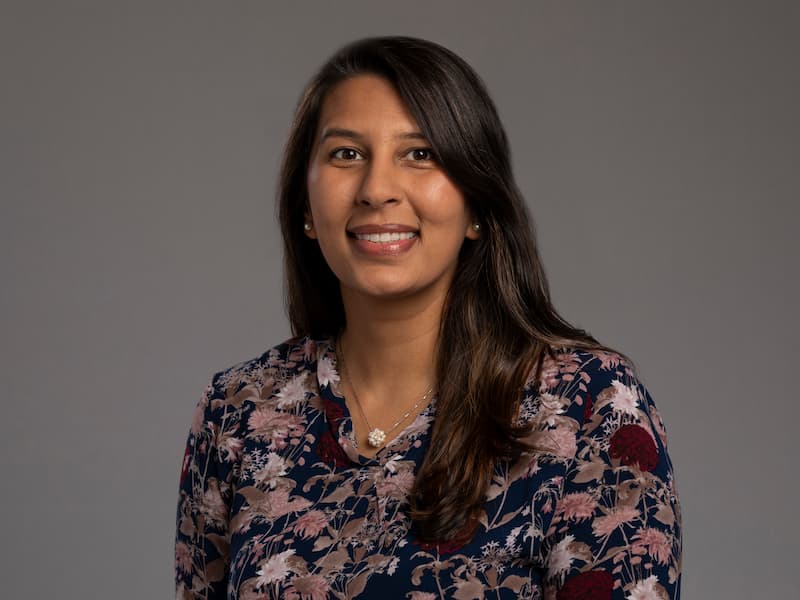
Zinal Agnihotri, MSW, LCSW, Clinical Manager
Zinal (she/her) is a clinical manager on the Integrated Mental Health and Wellness team with the Department of Social Work and Community Health. She is the lead psychotherapist on the non-epileptic seizure treatment team, where she provides mindfulness-based psychotherapy to patients who dealing with non-epileptic seizure episodes and generally with patients who deal with mood and anxiety disorders. Zinal has training in evidence-based therapy modalities and is most grounded in cognitive behavioral therapy and acceptance and commitment therapy when working with her patients. She received her master’s degree in social work from California State University-Bakersfield, where she specialized in gerontology and medical social work. She also completed a post-graduate fellowship at the University of Chicago School of Social Service Administration in contextual behavioral therapy.
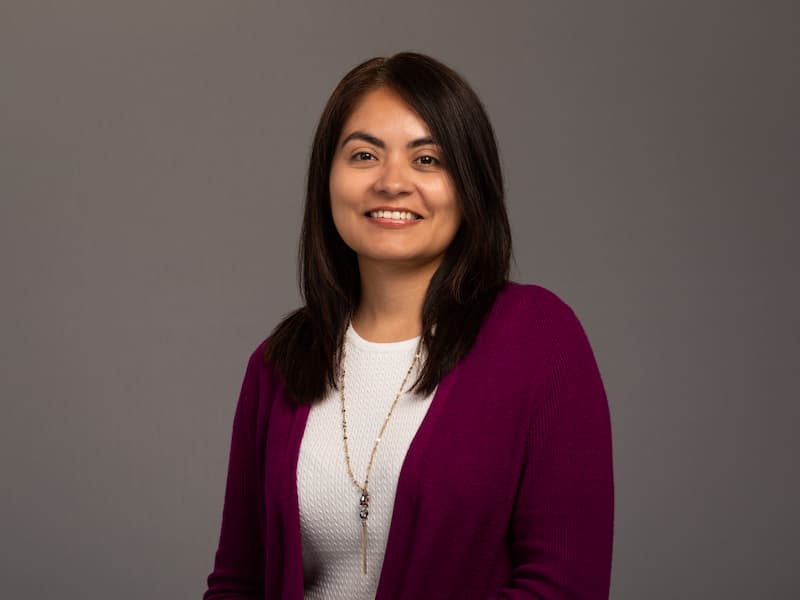
Yesenia Arreola, MSW, LCSW, PMH-C
(Other languages: Spanish)
Yesenia (she/her) is an outpatient psychotherapist with the Department of Social Work and Community Health, partnered with Rush’s OB-GYN practices. Yesenia obtained her master’s degree in social work from the University of Chicago at Illinois. Yesenia completed a perinatal mental health certification. Yesenia has experience providing mental health services to adults and their caregivers in the areas of trauma, exposure to violence, attachment, child welfare experiences, acculturation and immigration related experiences, grief and loss, adjustment to life transitions and perinatal experiences. Yesenia works to build safety and trust in the therapeutic relationship. With a strengths-based, client-centered and relational approach, Yesenia works to create a safe, non-judgmental and supportive space for individuals to begin to explore the themes that bring them to therapy and gain insight and skills, while also empowering individuals throughout their journey. Yesenia individualizes her therapeutic approach, using evidence-based and trauma-responsive practices, including psychodynamic framework, cognitive behavioral approaches, attachment-based theory, mindfulness and motivational interviewing. Yesenia is a bilingual and bicultural provider in Spanish.
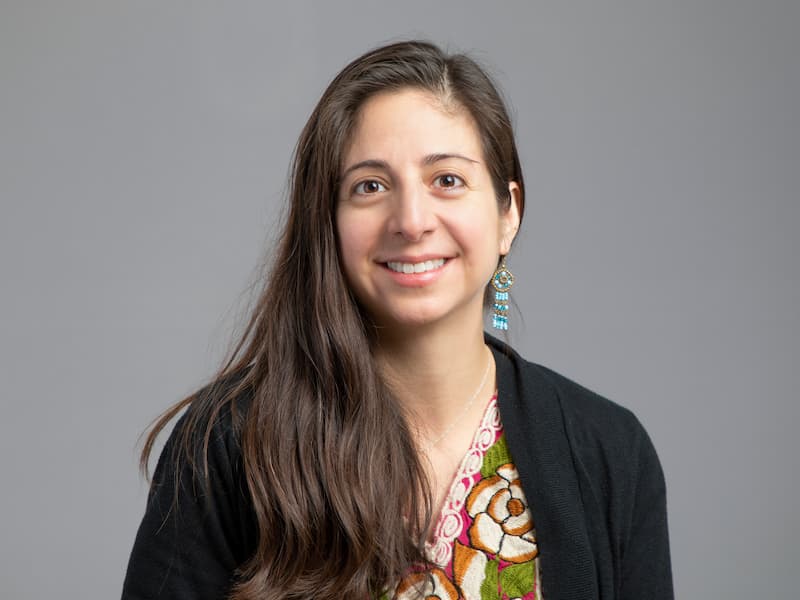
Michelle Bautista, MA, LCSW
(Other languages: Spanish)
Michelle (she/her) received her undergraduate degrees in psychology and Spanish from the University of Illinois and a master’s degree in social work from the University of Chicago. She worked for five years in the nonprofit sector providing counseling services to children and parents involved with the child welfare system and juvenile court. She also has extensive experience working with adults and children in acute hospital inpatient and outpatient settings regarding issues of medical complexity and trauma. Michelle is trained in eye movement desensitization and reprocessing (EMDR) and relies on cognitive behavioral and psychodynamic orientations, in addition to dialectical behavior therapy (DBT) and mindfulness when necessary and applicable. Michelle is a bilingual and bicultural provider in Spanish.
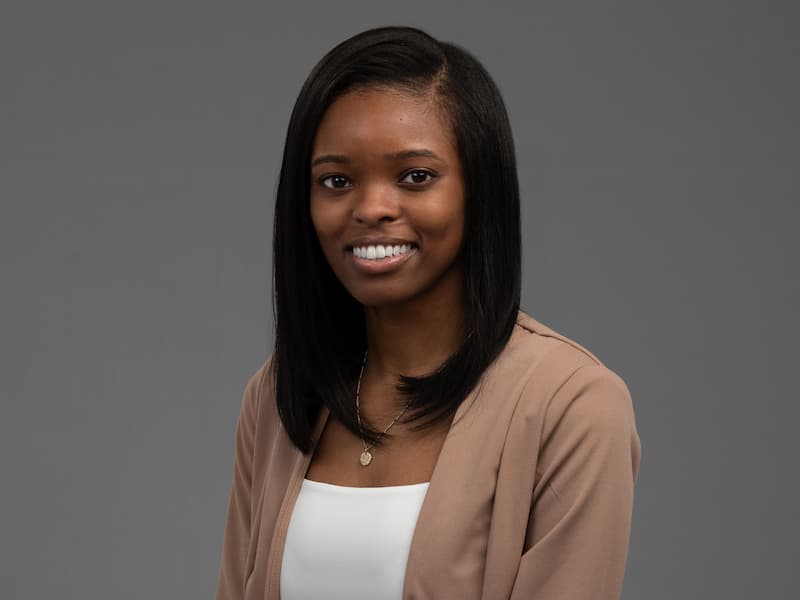
Chantanique Burdine, MSW, LCSW
Chantanique (she/her) received her bachelor’s degree in psychology from the University of Illinois at Urbana-Champaign and holds a master's degree in social work from the University of Illinois at Chicago. Chantanique also holds a certificate in evidence-based mental health practice with children and completed clinical training with the outpatient child and adolescent psychiatry program here at Rush. Chantanique has experience working with adults dealing with depression, anxiety, trauma and various life transitions. She also has experience working with caregivers to help them deepen their understanding and learn additional tools to support their loved one. She has a background in cognitive behavioral therapy, exposure and response prevention and trauma-focused cognitive behavioral therapy and takes a strengths-based approach when working with individuals.
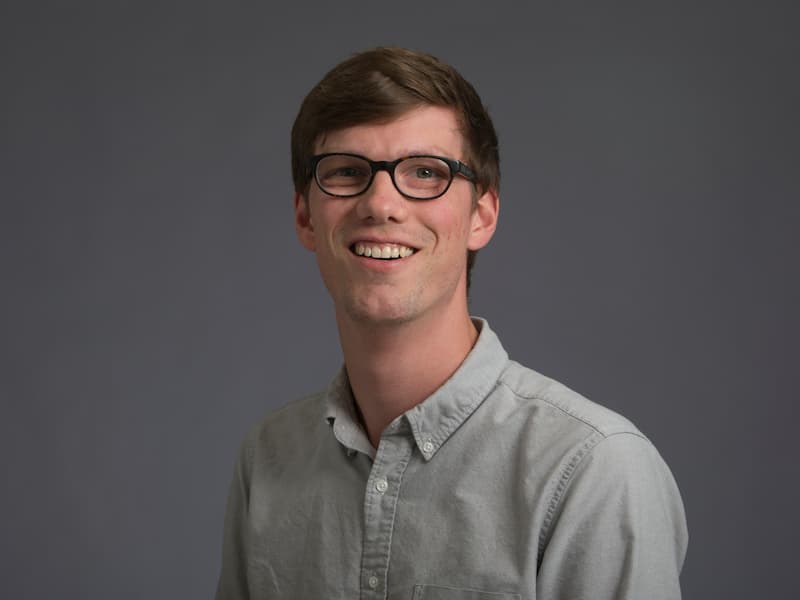
Brian “Tucker” Eads, MA, LCSW
Tucker (he/him) provides outpatient psychotherapy to adults facing a variety of challenges, including depression, anxiety, medical illness, caregiver stress and life transitions. His work with individuals draws on acceptance and commitment therapy, dialectical behavior therapy and mindfulness practice. Tucker received a master’s degree in clinical social work from the University of Chicago School of Social Service Administration. He has previously completed a postgraduate fellowship in contextual behavior therapy at the Emotion Management Program that he continues to incorporate into patient treatment.
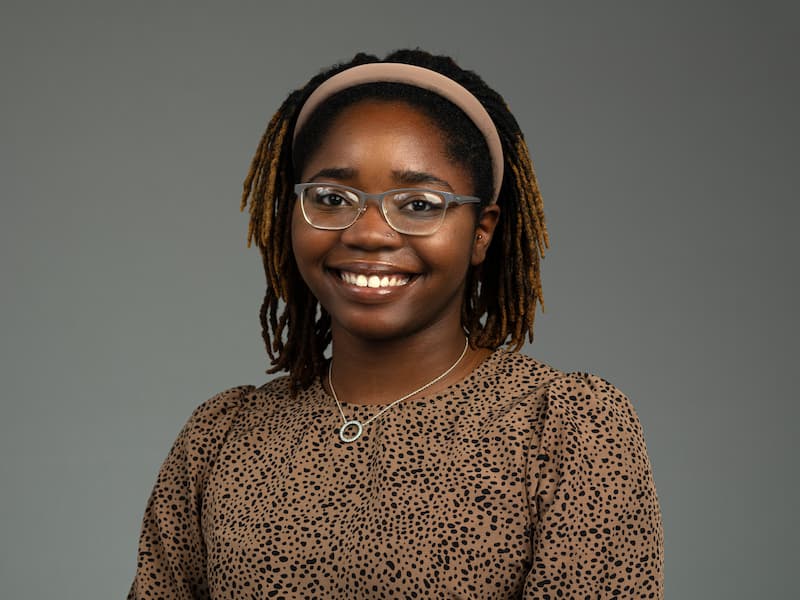
Jada Johnson, MSW, LSW
Jada (she/her) received her bachelor’s degree in gender and health studies from the University of Michigan-Ann Arbor with a minor in community action and social change, followed by master’s degree of social work from Loyola University-Chicago, specializing in mental health and clinical social work with groups, such as couples, families and psychoeducational groups. She has experience working with adults and families experiencing anxiety, depression, various life transitions, relationship conflicts and trauma. Jada strives to address the mental health and well-being of disadvantaged youth and families in Chicago and to help people understand a deeper reality of their experiences and evaluate solutions to their problems. Jada was part of the inaugural cohort of the Legacy Mental Health fellowship, where she provided support to community members who have been affected by gun violence through our partnership with the Institute for Nonviolence Chicago.
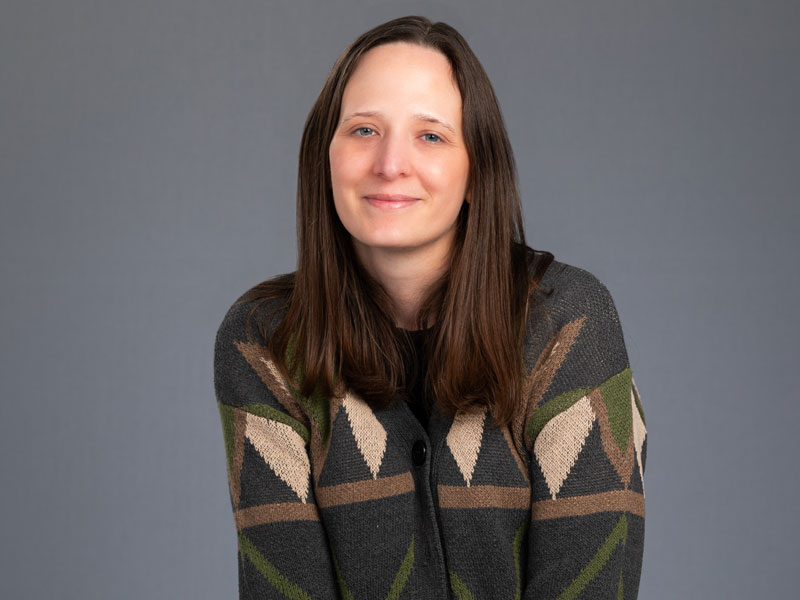
Lindsey Martin, MSW, LCSW
Lindsey (she/her) is a licensed outpatient psychotherapist with the Social Work and Community Health team at Rush. For the past eight years, she worked in nonprofit health care, providing individual therapy and integrated behavioral health services to patients in community health clinics in both Chicago and Columbus, Ohio. Lindsey works from a variety of therapeutic frameworks and is specifically rooted in a strengths-based perspective, in which an individual’s strengths are identified and embraced to facilitate healing and growth. Lindsey is passionate about working with adults who are experiencing depression, anxiety, trauma and substance use. She has also worked extensively with individuals living with and/or vulnerable to HIV. Lindsey is a graduate of The Ohio State University School of Social Work.
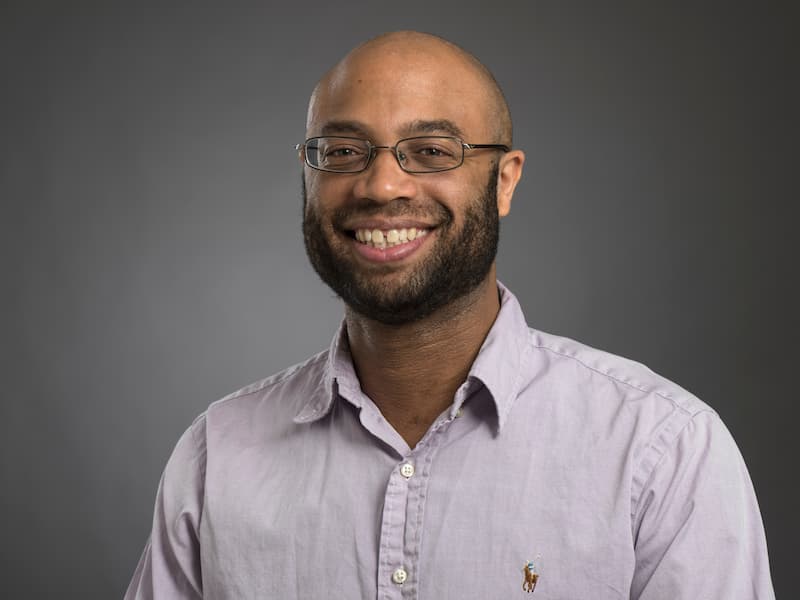
Ethan Powe, MSW, LCSW
Ethan (he/him) attended Loyola University Chicago’s Graduate School of Social Work, specializing in mental health and clinical social work with older adults. His areas of experience and specialty include cognitive behavioral therapy (CBT), interpersonal therapy (IPT), brief treatment, grief, and treating patients who are managing multiple chronic conditions.
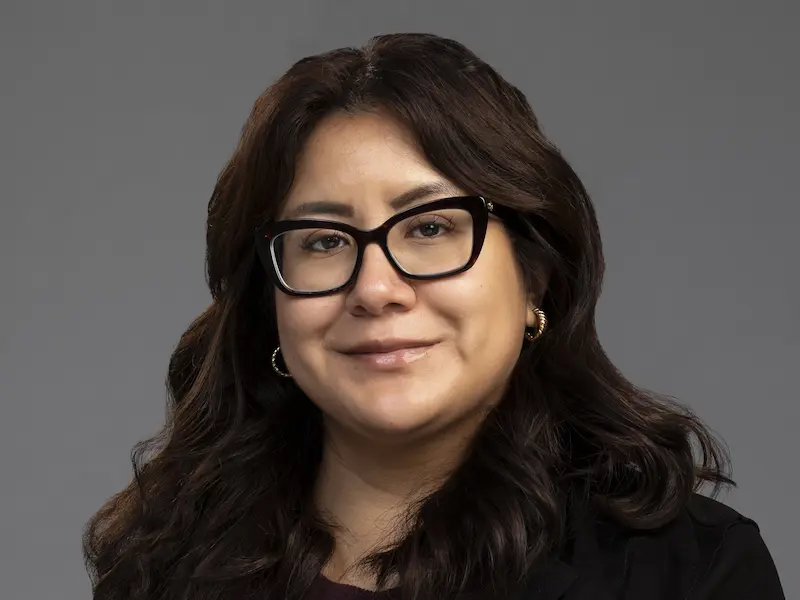
Daniela Rivera, LCSW
Daniela (she/her) is a licensed outpatient psychotherapist on the Integrated Mental Health team with the Department of Social Work and Community Health at Rush. Daniela received her master’s degree in social work from the University of Illinois Chicago, where she specialized in mental health. She brings over 13 years of experience in community social service and clinical therapy. Daniela strives to create a space for client-centered, inclusive, culturally-relevant, compassionate, affirming and destigmatizing mental health services. She values a systemic and strength-based perspective that is intersectional. Daniela takes a holistic approach and uses a variety of evidence-based and trauma-responsive techniques to support each person’s needs. She tailors each client’s treatment plans to fit their goals and focus on their individual strengths. Daniela is a bilingual and bicultural provider in Spanish.

Bethany Relyea, MA, LCSW
Bethany (she/her) received her undergraduate degree from the University of Wisconsin-Madison and a master’s degree from the School of Social Service Administration at the University of Chicago. Bethany believes in the profound value of listening and aims to develop a non-judgmental environment that offers the safety and trust to explore challenges. Bethany often works with adult individuals experiencing anxiety, depression, trauma, and relationship difficulties. She grounds her work in relational and psychodynamic approaches, as well as cognitive behavioral and mindfulness-based therapies.
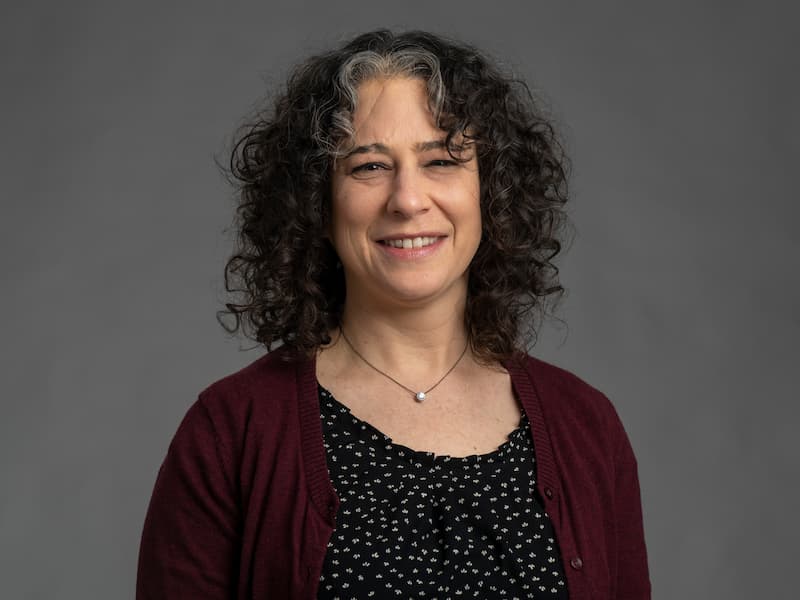
Maggie Skoller, MSW, LCSW, Clinical Manager
Maggie (she/her) is a clinical manager on the Integrated Mental Health and Wellness team with the Department of Social Work and Community Health. She received a master’s degree from Loyola University Chicago and has experience offering psychotherapy services to adults. Maggie strives to provide an open, nonjudgmental space to collaborate with individuals in tackling life’s many challenges. Rooted in a strengths-based perspective, Maggie is experienced with depression, anxiety, grief, chronic illness, aging, end-of-life issues, as well as complex family dynamics, caregiver stress and adjustment to life transitions. Along with her primary work supporting the outpatient clinic, Maggie also oversees the daily operations and psychotherapy being provided to Rush employees and students through our Center for Clinical Wellness.
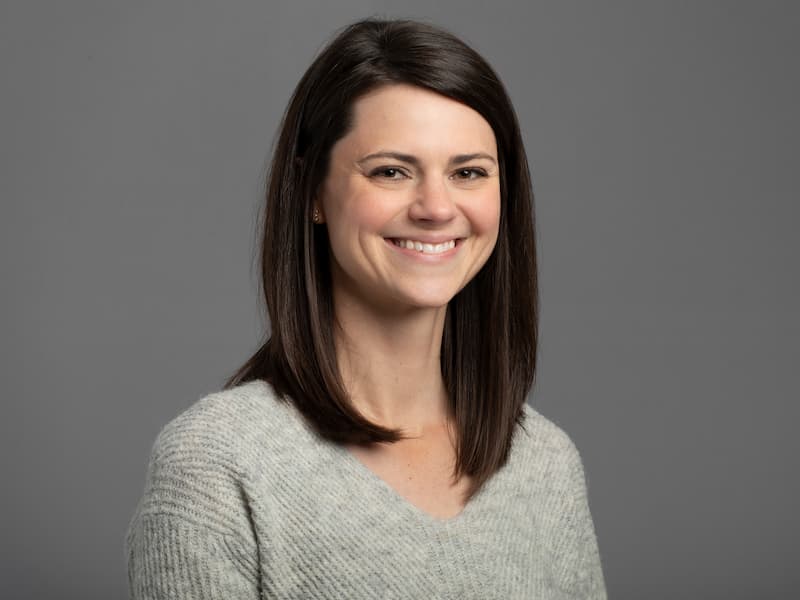
Haley Swanson, MSW, LCSW, CADC
Haley (she/her) received a bachelor’s degree in psychology from the University of Illinois at Urbana-Champaign and her master’s degree in social welfare from the University of California at Los Angeles. For over 10 years, Haley has worked in outpatient community mental health and health care settings providing individual therapy and integrated behavioral health services to adults. Haley is certified as an alcohol and drug counselor and has extensive experience working with individuals with co-occurring substance use and mental health disorders. Additionally, Haley is trained in the relational treatment of trauma, as well as perinatal mood disorders. Using a psychodynamic framework, Haley incorporates cognitive behavioral therapy, mindfulness and motivational interviewing into her practice.
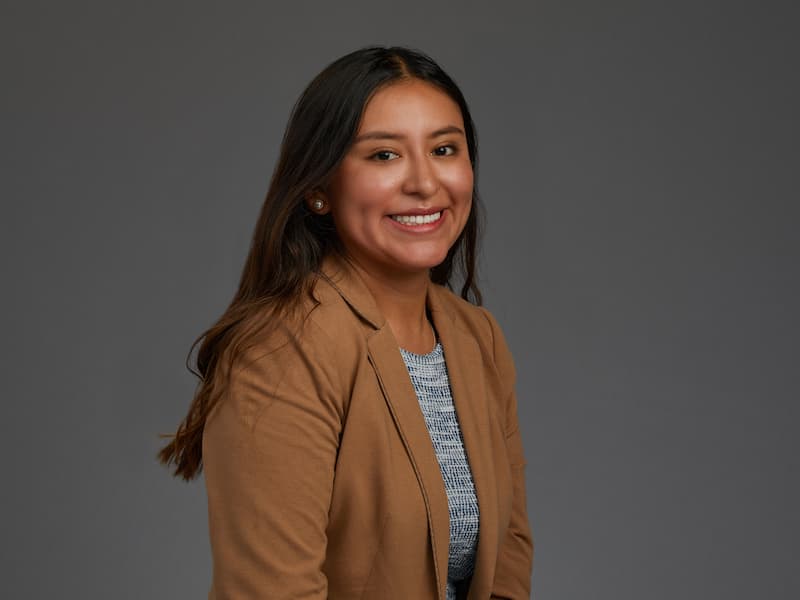
Lisett Tito, MSW, LCSW
(Other languages: Spanish)
Lisett (she/her) received her undergraduate degree from the University of Iowa and a master’s degree from the University of Illinois at Urbana-Champaign. She has experience working with adults dealing with depression, anxiety, family conflict, grief, trauma and various life transitions. Lisett strives to provide a safe and welcoming space to work with individuals to process, heal and grow. She uses cognitive behavioral therapy, mindfulness and a strengths-based perspective in her practice. Lisett is a bilingual and bicultural provider in Spanish.
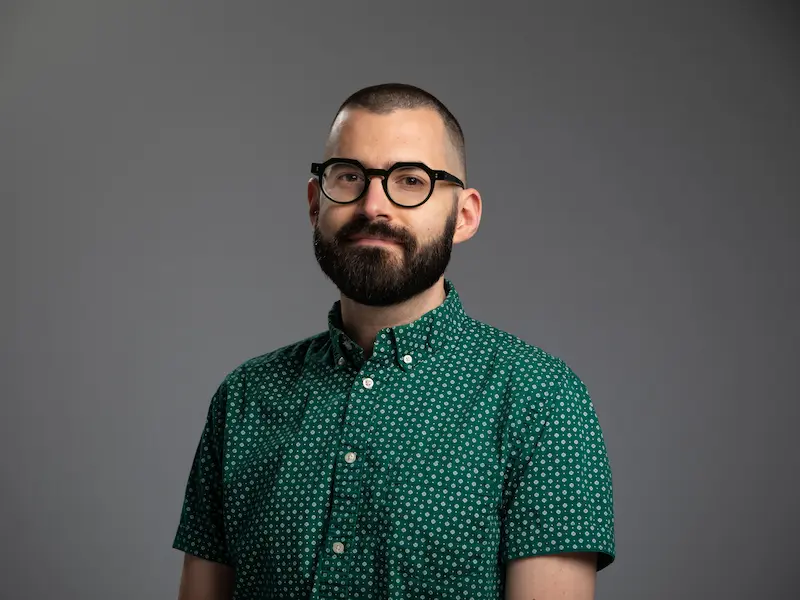
Lyndon VanderZanden, MSW, LCSW
Lyndon (he/him) provides outpatient psychotherapy through the Department of Social Work and Community Health in partnership with Rush University Medical Center’s Infectious Disease Clinic. He has experience providing mental health services for various needs relating to depression, anxiety, trauma, identity and chronic illness, with a focus on people living with HIV. He prioritizes a strength-based, person-centered approach to individualize care for each person and draws on various frameworks such as cognitive behavioral therapy, mindfulness, motivational interviewing and narrative therapy. Lyndon also has extensive experience working with LGBTQ individuals. He received his master’s degree in social work from Loyola University Chicago.
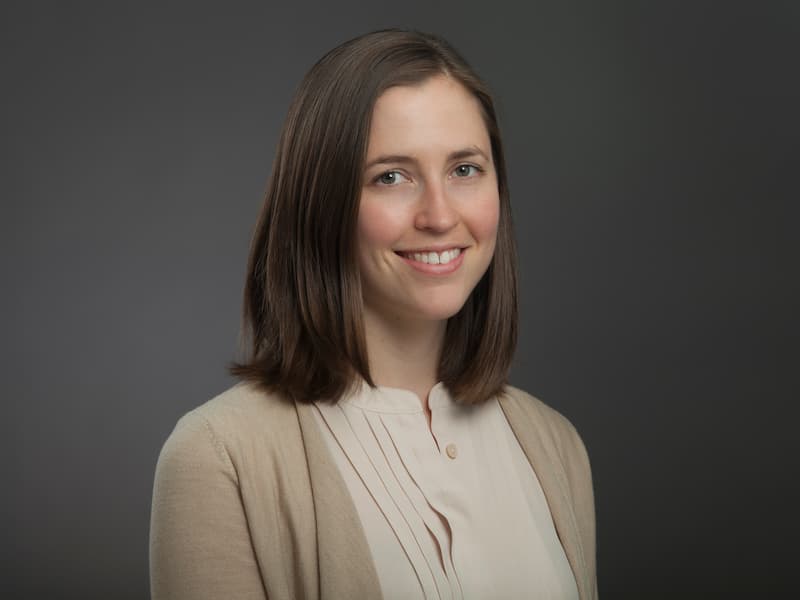
Anne West, MA, LCSW
Anne (she/her) offers outpatient psychotherapy services to adults with a range of presentations, including mood disorders, childhood and present trauma, loss and life transitions. Anne holds a master’s degree from the University of Chicago School of Social Service Administration, and she completed a postgraduate fellowship at Womencare Counseling Center, specializing in the relational treatment of trauma. She integrates psychodynamic, cognitive behavioral and mindfulness practices in her work with patients, while grounded in a relational framework.
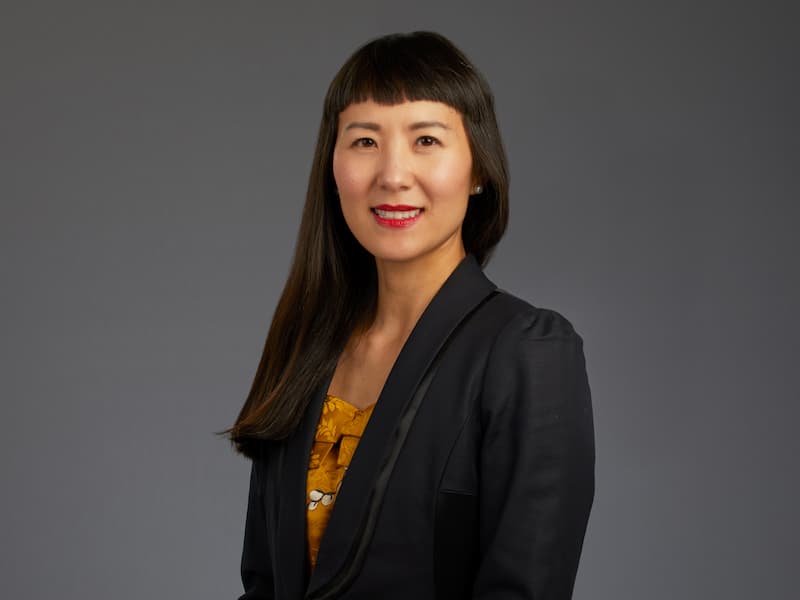
Jahee Hong Yi, AM, LSW
Jahee (she/her) provides outpatient psychotherapy to adults navigating issues related to anxiety, depression, trauma, loss, parenthood, caregiving, neurodiversity and life transitions. Jahee holds a master’s degree from the University of Chicago School of Social Work, Policy and Practice. She has worked for eight years in community integration, providing counseling and skills-building to adults with disabilities. She also provided social care to children and adults while living in India, expanding her curiosity and cultural attunement. Her master’s clinical training was completed in outpatient health care settings, providing psychotherapy to individuals across lifespan. Grounded in relational and anti-oppressive frameworks, Jahee integrates neuroscience and contextual behavioral approaches, including acceptance and commitment therapy, dialectical behavior therapy, functional analytic psychotherapy and mindfulness-based practices. Jahee is a bicultural provider in Korean.
Legacy Mental Health Fellowship
Founded in 2022, the Legacy Mental Health Fellowship supports emerging minority social work clinicians who have a passion for reducing health disparities and improving mental health access for Black and Latinx residents on the West Side of Chicago. Our fellows provide trauma-informed, culturally attuned and community-minded psychotherapy services at Rush. They also partner with community-based agencies in Garfield Park to improve access to needed services and assure that residents feel affirmed when requesting mental health care at Rush or partnered community-based organizations.
The Legacy Mental Health Fellowship is a collaboration between the Garfield Park Rite to Wellness Collaborative, Rush’s Department of Social Work and Community Health, and Chicago State University’s MSW Program. It is generously funded by Rachel Kohler and Mark Hoplamazian, the ITW Foundation and the Hemmelstein Endowment for Health Equity.
Our Fellows
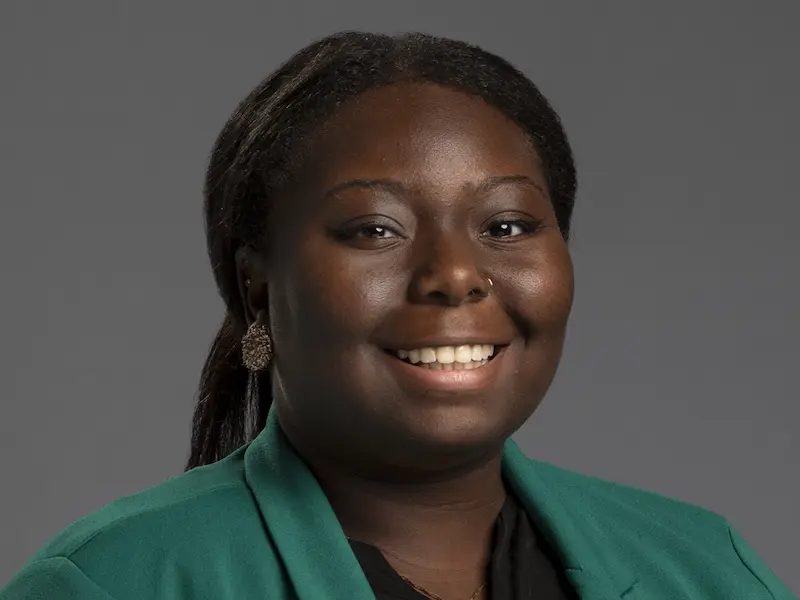
Brianna Bracy, MSW, LSW
Brianna (she/her) holds a bachelor’s degree in psychology and recently received a master’s degree in social work from Dominican University. She has worked part-time with the Rush Education and Career Hub (REACH) team as a project administration assistant, helping with high school and college programming for Black and brown students interested in entering the STEM field. This work centered on educational programming and community practice, mainly in West Side communities. She is a former Social Work and Community Health intern, where she supported the Rush@Home team and gained valuable experience in case management and worked closely with residents in the West Side community. She also enjoys giving back through mentoring young people. Brianna is passionate about accessibility to mental health services in underserved communities.
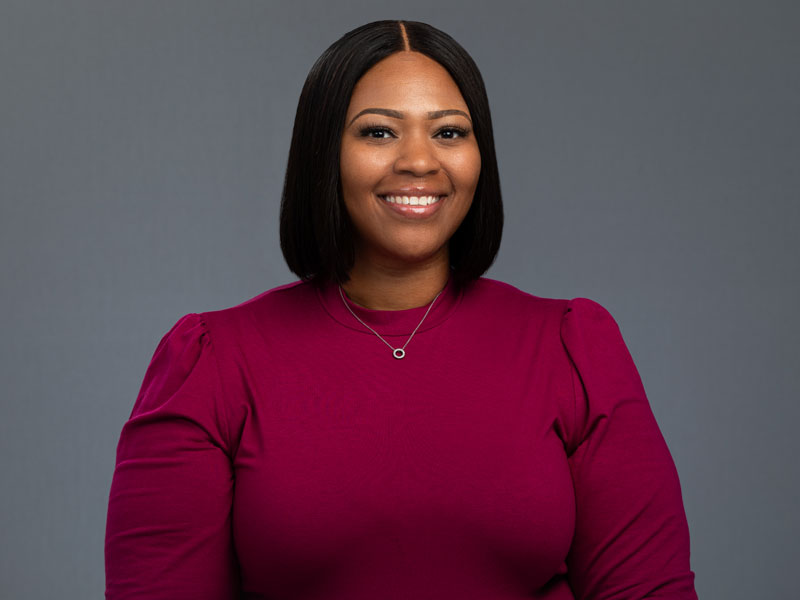
Kenisha Green, MSW, LSW
Kenisha (she/her) holds a master’s degree in social work from Chicago State University and brings a wealth of experience to her current role. With a strong background in the nonprofit sector, she has worked extensively with adults in diverse settings, including child welfare, re-entry programs and substance misuse. Kenisha is dedicated to creating a safe and nonjudgmental therapeutic space for individuals to heal and grow. Specializing in trauma-informed care, she actively partners with patients to overcome the negative effects of trauma in their daily lives. In her typical day, Kenisha offers therapeutic services in a variety of formats, collaborating with interdisciplinary teams to ensure comprehensive and personalized care. Beyond direct patient interactions, she engages in community outreach and education, advocating for mental health awareness and destigmatization.
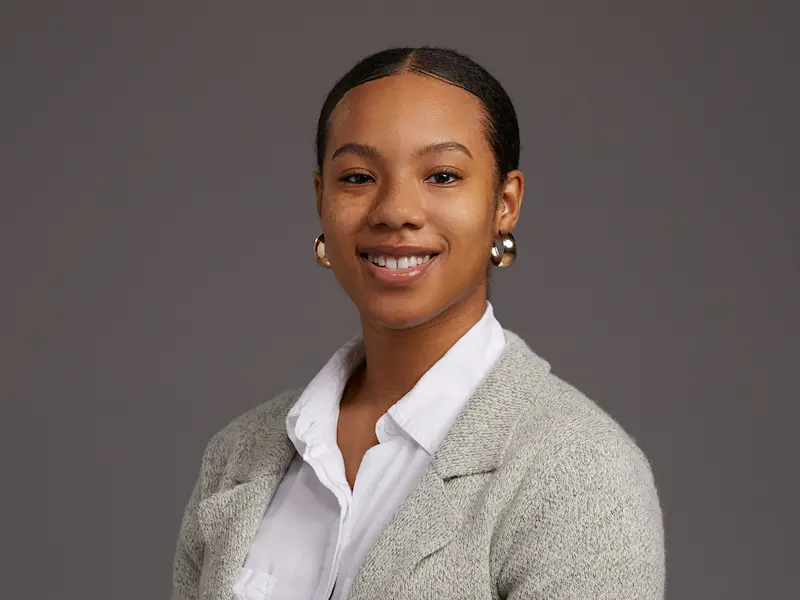
Nia Lennan, MSW, LSW
Nia (she/her) received a bachelor’s degree in psychology from the University of Miami, with minors in political science and Africana studies. Following her undergraduate studies, Nia worked as a clinical research assistant in Rush’s section of Community Behavioral Health in the Department of Psychiatry and Behavioral Sciences. In this role, Nia conducted intake assessments and satisfaction interviews for the perinatal narrative exposure therapy research study, which provided this therapy to women who were pregnant and experiencing symptoms of PTSD. She also assisted with various other research projects focused on addressing the mental health concerns of people living within Chicago’s West Side. This opportunity created a framework for the ways in which Nia presents as a clinician today, holding space for the variety of events in a person’s life that affect their present experience. After two years of working with Rush, Nia embarked on her graduate studies at the University of Chicago’s Crown Family School of Social Work, Policy and Practice. In graduate school, Nia interned with child welfare agency, Kids Above All, as well as Northwestern’s Outpatient Psychiatry Clinic. These opportunities provided Nia with clinical experience throughout the lifespan, addressing traumatic events, anxiety, depression, relationship strain and chronic illness. Nia has received education in a variety of behavioral, psychodynamic and trauma focused modalities, while also using the extensive knowledge she gained in narrative exposure therapy during her previous role.
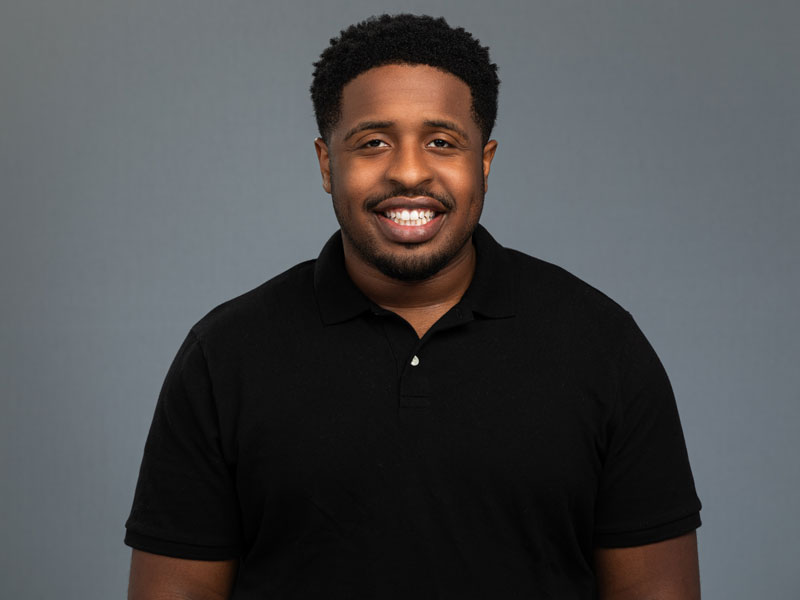
Maleek Ratliff, MSW, LSW
Maleek (he/him) received his undergraduate degree in social work from Northeastern Illinois University and his graduate degree in social work, specializing in mental health from the University of Illinois Chicago. He has years of experience working with older adults as a mental health counselor, as well as experience working with the homeless population. While working in the hospital setting as a counselor, he ran therapeutic groups, provided individual check-ins and helped patients through the life challenges they faced. Maleek is passionate about addressing mental health and the overall well-being of those who have faced various forms of trauma.
Support Staff
The navigation core team helps our psychotherapy workflows run smoothly and connects patients to appropriate services. They are the first point of contact for patients and referring partners and support patients in understanding expectations and insurance inquires. The navigation core team is dedicated to the well-being of our patients and strives to improve access to these needed services through their work.
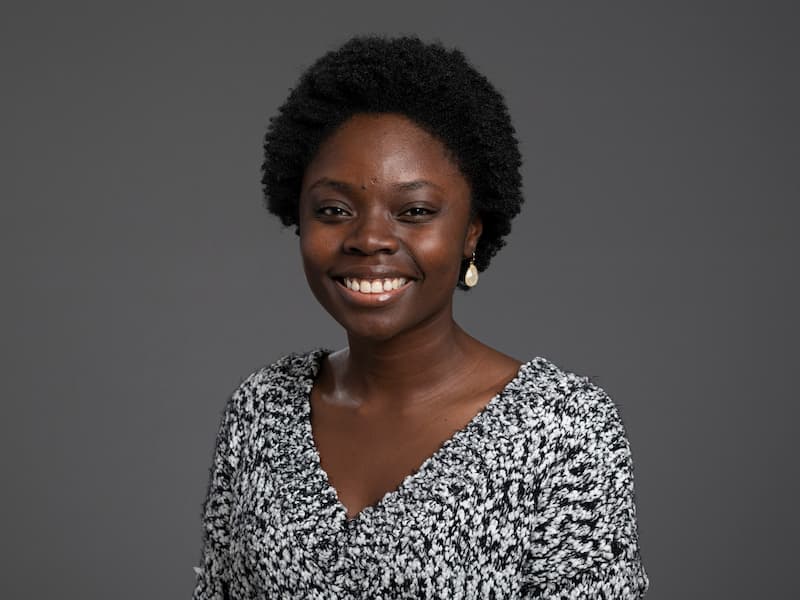
Perpetual Assem, Psychotherapy Program Coordinator
Perpetual (she/her) is a results-driven administrator with a background in physical medicine and non-profit sectors. Her diverse experience spans various fields, showcasing her adaptability and commitment to making a positive impact. She earned her undergraduate degree from the University of Iowa, majoring in health and human physiology with a minor in psychology and human relations. Currently, Perpetual excels in supporting the supervision and management of the patient care navigation staff. In her role, Perpetual focuses on coordinating psychotherapy programs, where she excels in liaising with various providers, managing referral workflow process and ensuring excellent quality of patient care. Her dedication to fostering a collaborative and supportive environment underscores her valuable contributions to the enhancement of the psychotherapy clinic.
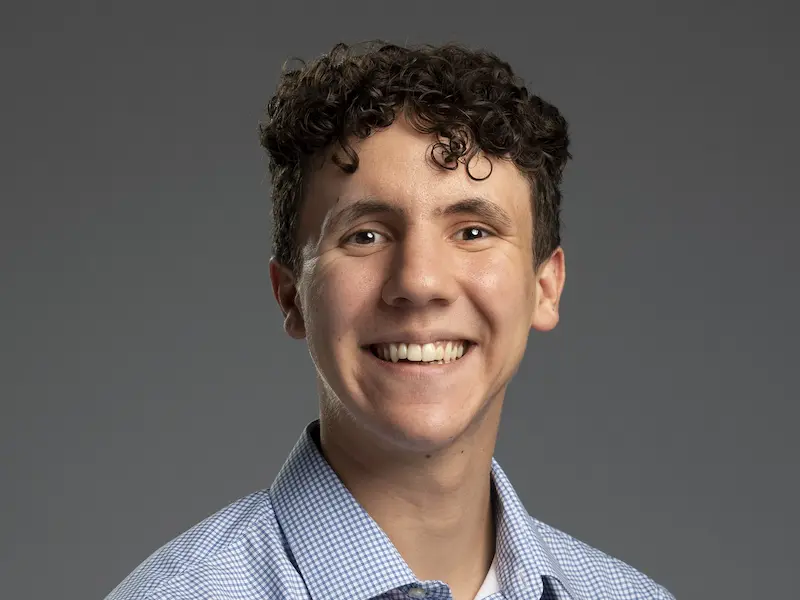
Jake Baranoski, Psychotherapy Care Navigator
Jake (he/him) is a psychotherapy patient navigator with the Department of Social Work and Community Health. With a bachelor’s degree in health science from Clemson University, Jake brings a strong knowledge of health systems to his role. His professional background includes experience in hospice care and bariatrics, which provides Jake with valuable skills in empathetic communication and patient interaction. In his current position, he plays a vital role in supporting patients through the navigation of mental health services, coordinating appointments and facilitating insurance verification. He strives to create a supportive and patient-focused experience, leveraging his commitment to empathy and support to enhance care and accessibility.
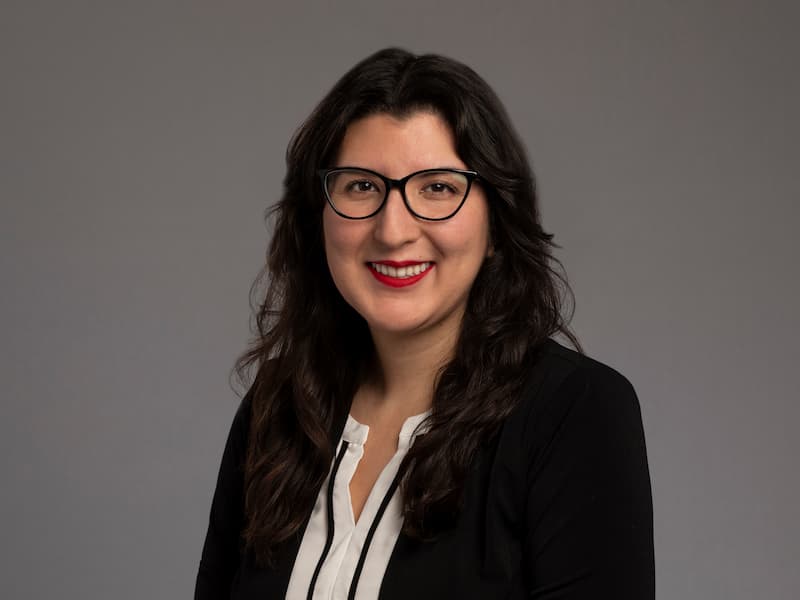
Anabelen Diaz, MPH, MSW, LCSW, Care Manager
(Other languages: Spanish)
Anabelen (she/her/ella) provides case management services to connect patients to resources that address the social determinants of health. Anabelen is a collaborative professional with experience in working across multiple teams to achieve organizational goals. She obtained a master’s degree in public health and a master’s degree in social work from the University of Illinois at Chicago. Her educational focus was on health policy and administration and mental health among older adults. She also holds a bachelor’s degree in public health from UIC. Anabelen is a bilingual and bicultural provider in Spanish.
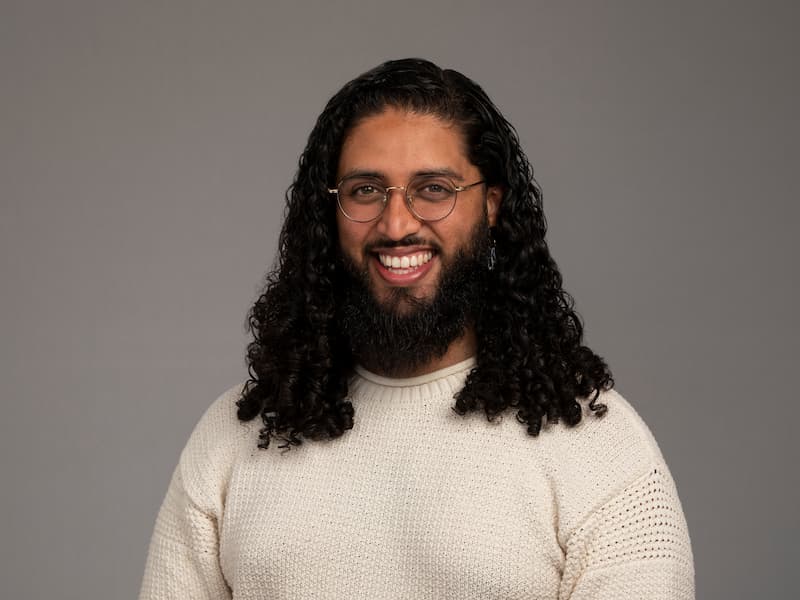
Shawn Parra, MA, MSW, LSW, Intake psychotherapist
(Other languages: Spanish)
Shawn (they/he/él) is the intake psychotherapist for the Department of Social Work and Community Health. Shawn has completed their bachelor's and master's degrees in psychology and their master’s degree in social work from Boston University. In their master’s degree of social work program, they majored in clinical social work, minored in macro social work and specialized in trauma and violence studies. Shawn is currently at University of Illinois at Chicago completing a doctorate in social work and their dissertation is called "The Emotional Wellbeing of BIPOC LGBTQ+ Youth: A Grounded Theory Study.” Shawn has mainly worked in community health and health care settings. Clinically, they have experience as an in-home therapist, school-based counselor and outpatient therapist. Shawn has worked with all ages, but their focus has been more with youth and families. As Shawn speaks Spanish, a lot of their training has been in generalist practice to be able to meet the needs of our underserved Spanish-speaking population. However, their career has primarily been focused on intersectionality, Black and brown and queer and trans rights and mental health, and family relationships. Shawn is trained in trauma focused cognitive behavioral therapy and pulls from other modalities, which demonstrates their eclectic approach. Shawn’s goal in treatment with patients is to be collaborative, person-centered, trauma-informed and anti-oppressive.
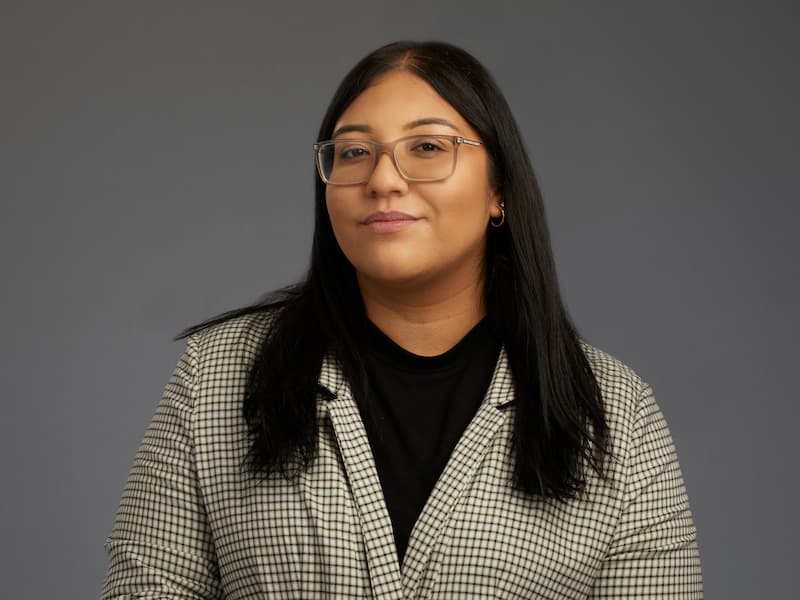
Evelyn Perez, Psychotherapy Care Navigator
(Other languages: Spanish)
Evelyn Perez (she/her) is a skilled professional with a background in psychology, having earned her undergraduate degree from Saint Xavier University-Chicago. Her career journey includes valuable experience at a substance abuse center, where she honed her expertise in addiction and infectious diseases. In her current capacity, she excels at guiding and supporting patients through the complexities of mental health services. Her responsibilities include coordinating appointments, securing insurance verification and ensuring seamless communication between patients and the psychotherapy team. Evelyn's compassionate approach and diverse background make her an invaluable asset in facilitating optimal patient care and navigating the challenges of mental health services in an outpatient setting.
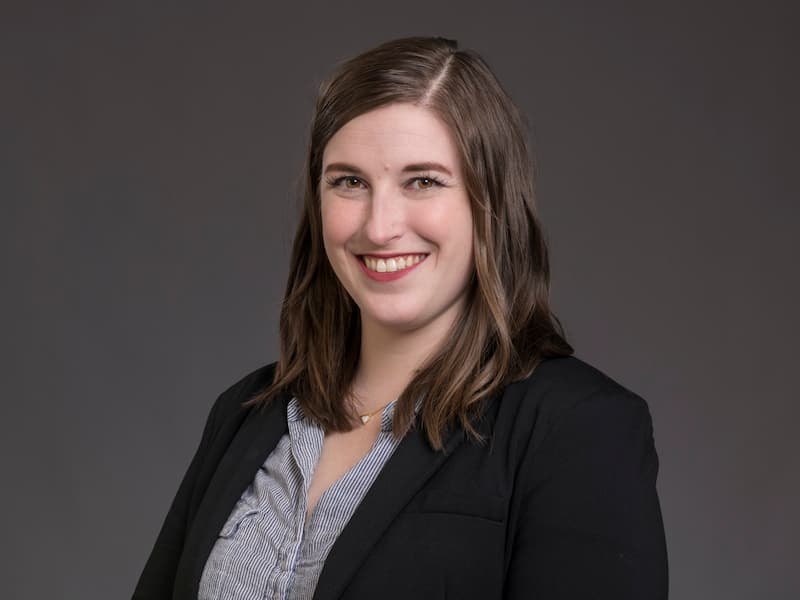
Rebecca Lahey, MSW, LCSW, Director
(Other languages: Spanish)
Rebecca (she/her) is the director of Integrated Mental Health and Wellness in the Department of Social Work and Community Health. She oversees the psychotherapy services provided by her team of clinicians to Rush staff, students and community members and is passionate about supporting the well-being of individuals and the community. Her team provides mental health support through our outpatient clinic, in partnership with certain Rush specialty care clinics, and through Rush Wellness. Additionally, she is an instructor in the Department of Social Work in the College of Health Sciences at Rush University and is proud to support Rush’s efforts to improve health equity. Rebecca’s background is as a bilingual psychotherapist in Spanish with expertise in trauma, depression and anxiety, acculturation, adjustment to major life transitions and interpersonal or relationship difficulties. She received her bachelor’s degree in social work and a bachelor’s degree in Spanish from University of Wisconsin-Madison. She also received her master’s degree in social work from Loyola University, specializing in health care, immigration and acculturation.
